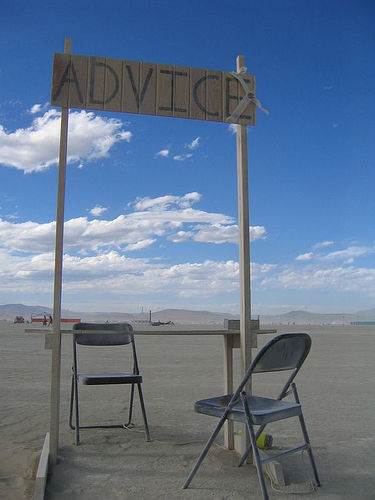Advice I Wish I’d Been Given When I Started … Part 6
This continues our (somewhat interrupted) series asking some seasoned, experienced authors what three key bits of advice they would give new writers that they wished they’d known when they started writing. We all wish someone had given us gems of wisdom that would help us avoid wasting precious time and making serious career mistakes. So I hope hearing the advice from these various authors will help you in your writing journey! (Check out some of the other recent tips from writers here, here, and here).
Today’s post is from author Jesse Giles Christiansen:
Hi, thanks for having me guest post here. My novels attempt to marry literary fiction with mystery and suspense. I have two novels: a self-published book entitled About: Journey into the Mystic and a published book entitled Pelican Bay. I’m currently working on two more novels—one a part of a series, and the other a foray into historical fiction.
Learn to Play Musical Chairs
Being a writer might be viewed as a sort of beautiful insanity. We have something profound to share, something lurking inside our souls, begging to be given wings and set free, free to fly amid the world and illuminate our readers’ souls in turn. But when it comes to finding our readers, in this century, we have to perhaps become experts at the game of Musical Chairs. And unfortunately, as you guessed, there are far less chairs than there are authors. However, make no mistake, our readers are out there, but to find them we have to be prepared to not just enlighten them but. when the music ceases, dazzle and suspend our readers enough to earn and keep a seat next to them.
If I had three morsels of truth that I could depart to a writer new to the immensely gratifying but sometimes cruel game of Musical Chairs, it would be these.
Self-publishing a work is like yelling up at the stars, “Hey, look at me.” The stars are not going to answer you.
When I wrote my first novel, I thought that just getting it out to the world was going to be enough. I think every author has to let go of this fantasy. Yes, it is a beautiful fantasy. Beautiful in its naivety. Beautiful in its blind yet wistful promise. Beautiful in its invigorating and infectious enthusiasm. We think that the world is going to see our great words and become hypnotized by them, shouting, “My God, get that author to the New York Times! I’m so glad that he published that amazing story!”
And then we wake up.
I woke up when I put my first novel—a very unique blend of literature, poetry, and adventure—on Amazon.
And I waited. And waited. And nothing happened.
I knew that I was doing something wrong, but I could not quite place my finger on it.
In the 21st century, authors have to grow a marketing limb or be prepared to just write as a hobby.
I can’t say that I knew back then with my first novel what I was doing wrong, but I wanted readers. I wanted reviews. I wanted a chance at a writing career. So I began distributing my work to agents and publishers. It was a hard road, with a lot of rejections, but I finally succeeded by getting my second novel Pelican Bay accepted by Imajin Books.
After attending seminars and learning buzz words like social media and blog, I was already starting to get a clue. When I signed with Imajin Books, I already had Facebook, Twitter, and blog accounts. I really think this helped me get published. The reality is that even with larger publisher, budgets are becoming thinner, and the Internet is becoming bigger. Publishers are just more likely to sign an author with a web presence and marketing capabilities. The day of the “writer prodigy” sitting in his basement and sending off masterpieces that publishers trip over to publish are gone. But once you learn to promote, there is a giant thorn on this rose. When the writer increases visibility, people are going to take shots at you.
Without “thick skin,” a writer may never rise beyond a small readership.
I don’t know how one attains “thick skin.” My skin is thicker, but I don’t know if it will ever be ultra thick. I was one of those pushovers that always believed people are generally nice, that artists are going to support other artists, etc., etc.
Then I woke up.
Don’t get me wrong. There are a lot of nice people out there, and I work with many collaborative artists every day. But there are also mean people out there—and the higher you rise, the more they appear. It’s like raising your head up above the crowd so a plane can knock it off more easily.
You just have to learn to duck, that’s all. Maybe that’s what “thick skin” is. Knowing when and how to duck.
As I write this, my second published novel has 44 reviews (in only three months). Are they all 5-stars? Hardly. Only 25 are. Are there bad reviews? Yes. It is hard to believe that a well-written work could be hated so much, but go look at any work that has high visibility. I don’t care who the author is. There are always going be low, even hateful, reviews.
Even worse, people will do and say ugly things—even other authors in your same field, even same group. I don’t know why. I wish I did. Maybe it’s because if you’re doing all your promoting, have a good publisher, and a strong story to boot, and your visibility is higher than theirs, there’s some ugly facet of human nature that makes them want to knock you down. It really makes no sense, because artists are so unique, as well as their work. By supporting fellow authors you ensure a place for yourself more, because you are learning from and supporting one another, sharing great positive energy, and laying the groundwork for kudos when you need them.
I wish I could say that I have the magic potion to thick skin. Truth be told, I don’t read reviews under 4 stars. Most of them are not objective at all but just hateful, and I leave feeling awful afterward. When other readers or even fellow artists are hateful or mean, I cordially cease relations with them, and turn my energy toward attracting collaborative souls.
But never harbor bad feelings. Ever. It just isn’t worth it.
So, I sincerely hope that those reading these words can garner something from them. We all have to learn our lessons, especially in this crazy literary business, but perhaps by learning from others who have walked where you are about to walk, your moccasins can step a bit more softly and easily.
To soft and easy moccasins and great success,
J.G.C.
Feature Photo Credit: igorms via Compfight cc
 Jesse Giles Christiansen is an American author who writes compelling literary fiction that weaves the real with the surreal. He attended Florida State University where he received his B.A. in English literature. He wrote his first novel, About: Journey Into The Mystic, after spending a summer in Alaska working on fishing boats. His newest novel, Pelican Bay, focuses on a very old fisherman, Captain Shelby, and the mysterious happenings linked to him surrounding a nosy, sea-battered beach town. One of his literary goals is to write at least fifty novels, and he reminds himself always of something that Ray Bradbury once said: “You fail only if you stop writing.”
Jesse Giles Christiansen is an American author who writes compelling literary fiction that weaves the real with the surreal. He attended Florida State University where he received his B.A. in English literature. He wrote his first novel, About: Journey Into The Mystic, after spending a summer in Alaska working on fishing boats. His newest novel, Pelican Bay, focuses on a very old fisherman, Captain Shelby, and the mysterious happenings linked to him surrounding a nosy, sea-battered beach town. One of his literary goals is to write at least fifty novels, and he reminds himself always of something that Ray Bradbury once said: “You fail only if you stop writing.”
Visit Jesse at his website here, and follow him on Twitter here.












The thing about bad reviews: it’s much easier to write something negative, or to complain, than it is to put together a well-thought piece of praise. It’s easier to hate something than it is to say something nice for a lot of people. It also gives people a sense of power when they are belitting someone else’s work, and with the internet, there is no accountability or risk of having to be shamed or confronted on hurtful words. They can simply log out and never return to your site/the review again. I think that perspective is worth keeping at the back of your mind. It makes the thoughtful reviews, even if they aren’t five stars, more meaningful.
I’ve never read a great book that didn’t have its fair share of one star reviews with scathing comments. They’re often made without reason or due to oversensitivity about something (e.g., foul language, negativity expressed by a character, “I’m an engineer and let me tell you why the author doesn’t know #!#!#! about engineering!”). It’s a pervasive, unavoidable internet phenomenon. If someone sold a guaranteed “cure for cancer” with no side effects on Amazon, I’m convinced that a fair number of reviewers would find it inferior and deserving of the lowest rating. So thick skin is a must, but there’s comfort in the fact that these attacks are simply unavoidable and often arbitrary.
So true. I’ve read fun posts about all the scathing reviews the great classic (best) novels of all time have garnered. Among my writer friends, we consider that first one-star review a badge of honor. You finally “make it” as an author when someone is mad enough to spend their time posting a bad review. I’m sure that’s how Dan Brown’s The DaVinci Code sold 80 million+ copies. A lot of people were really mad at his book, and controversy generates sales, among other things.
Thank you for your insightful comments everyone. Perhaps one-star reviews are not that bad after all!
Another thing I’ve noted and heard from authors is that one-star reviews often come on the heels of a free KDP promo. I’ve had readers pick up one of my books, write a low-star review, and then say something like “I never read this genre, and would not have bought this book, and I only read the first chapter.” Well, I think, of course, a reader should never leave a review for a book that’s in a genre they don’t like. Chances are they won’t like the book! So it doesn’t seem fair. A person spending money on your book is likely to like the genre, or at least read it all or most before leaving a review. This is one of the reasons I don’t give any of my books away for free anymore. And since then, I have not gotten any 1- or 2-star reviews.
Jesse,
Regarding your comment “I don’t know why. I wish I did.”, you may be seeing the effects of narcissism. Narcissism in central to my writing. Your well-written book would harm a narcissistic author’s illusion of literary grandiosity, exposing him or her to unconscious shame, to which he or she is excruciatingly sensitive. For lack of a better description, such authors would have to build themselves back up by tearing your book (and hence you) down.
As opposed to legitimate criticism, such individuals would have a pathological need to find fault with your work, to the extent to inventing it. Ignore them.
Writing your book and getting it published is really only part one. If you want to gain exposure that can turn into sales, you need to learn how to market your book in the right channels.
Of course, marketing is a whole other topic. Not the kind of advice I could have given myself nearly thirty years ago, since self-publishing wasn’t an option, and the post is about sage advice that carries over decades, despite publishing trends. I believe there will always be a need for writers to attend workshops and keep learning, as well as writing continually to improve.